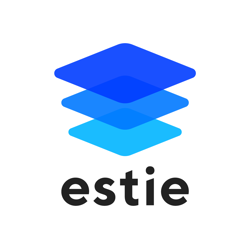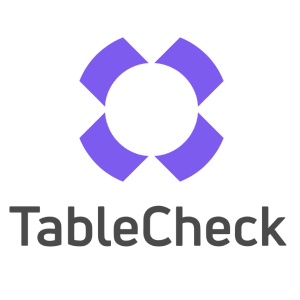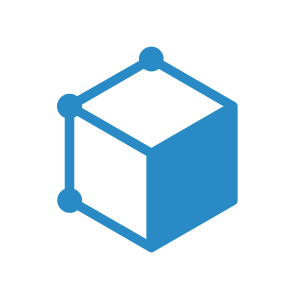Updated March 24, 2025
8 Companies in Japan with "Worldwide Remote OK" Policies [March 2025]
The normalization of remote work is one of the few good things to come out of the pandemic.
Technically, it was already a thing even before covid-19 came along. But for most, it was a pipe dream. We’d heard vague stories of these “forward-thinking” companies that let employees work remotely from anywhere in the world and sigh with envy.
And then everything changed. Look at where we are now — companies in Japan allowing worldwide remote work are abundant.
In just a few short years, working remotely went from being a privilege to standard practice, even for industries that would never consider letting their employees work from home in a billion years.
And while most companies touting “remote work” still require employees to be in the same city — or at least country — a surprising amount of companies are allowing remote work from anywhere on earth.
This includes companies in Japan. Especially in the tech world, working from home has become a valid choice. And a significant subset of companies have opened their remote policy to those who want to work from overseas as well as within Japan. Now, working for a company in Japan from abroad is an option.
This is why I’m writing this post today. I know that most of us enjoy the perks of working remotely, and I wanted to gather a list of the top companies in Japan that allow remote working from anywhere.
Work at Japan-based Companies From Abroad

I already wrote about this in detail in my other blog post about remote work in Japan, but in the past few years, working from home has become a common practice for many companies here.
It’s not all industries, of course — there are a number of traditionally structured industries that have a hard time implementing remote work. This is why you see news about 70% of Japanese people returning to offices even before things start cooling down.
However, the reality in the tech world is different. Most internationally operating tech companies in Japan have implemented remote working permanently, and they promise to keep it that way.
Some companies only allow remote workers from within the country, but some allow you to work from anywhere in the world.
Below, I’ll list some of the best companies in Japan that allow remote work from anywhere in the world, and introduce them briefly.
Migaku
Migaku is an innovative company specializing in language-learning tools designed to help users master new languages quickly and effectively. Their platform provides an all-in-one solution for learning through immersive techniques, including video-based learning, subtitles, and reading comprehension tools.
Migaku fully embraces remote work and hires worldwide, making it an excellent option for engineers, product designers, and other professionals who prefer flexible working arrangements.
The company offers a global, remote-first work environment, meaning employees can contribute from anywhere in the world without needing to relocate to Japan.
Migaku frequently has openings for remote roles, including front-end development and various other tech positions.
Givery
Givery is a technology company that provides a range of services, including HRTech and AI-driven solutions. They provide remote work opportunities, but the specific policies vary depending on the division and role.
Some positions allow worldwide remote work. For example, their full-stack engineer role supports working from abroad.
Other positions require employees to be in Japan. However, even for these roles, Givery allows employees to work from abroad temporarily with prior approval from both the company and its clients.
An example is their AI engineer position, which requires the employee to be based in Japan but allows occasional remote work under certain conditions.
Since Givery’s remote work policies vary, candidates should carefully check each job listing to understand the specific requirements before applying.
ZooKeep
Founded in November 2021, ZooKeep aims to become Asia's premier integrated hiring platform. Improved candidate, recruiter, and hiring manager experiences are the main goals of their hiring platform.
Their Talent Acquisition Platform is designed for companies who want to cut costs and time spent in talent acquisition while significantly improving hiring outcomes and collaborating smoothly throughout the hiring process.
ZooKeep is looking to expand their agile development team and wants to transform how hiring is done. They foster inclusive and diverse cultures, and allow their members to work in full remote or hybrid working environments.
AnotherBall
AnotherBall is a tech company with its global headquarters nestled in the bustling city of Singapore. At the forefront of their innovation is IZUMO, a dedicated project tailored for the vibrant community of "otaku" enthusiasts, showcasing a deep love for anime, manga, games, and VTubing culture.
Their platform will be a haven for streamers, illustrators, musicians, and video producers, offering them the opportunity to not only connect with fans but also monetize their content sustainably.
They are actively hiring globally and will support worldwide remote work environments, allowing developers to have fully flexible working hours.
TableCheck
TableCheck provides an all-in-one platform that allows users to explore restaurants, view their menus, and make reservations.
The company’s work hours are flex time with core hours, which are between 11 AM and 3 PM JST. In addition, the company follows a “remote work from anywhere” policy.
However, you’ll need to set your work schedule according to JST, as TableCheck only allows remote employees from other time zones if they can at least be available for a few hours between 10 AM and 7 PM JST.
TableCheck’s paid time-off benefits are pretty standard, as they offer 10 days annually in addition to Japanese national holidays.
Autify
Autify aims to deliver services that empower software development companies to accelerate the delivery of high-quality software to their clients.
They have created a no-code AI-powered software testing automation platform so anyone can easily create, execute, and automate software test scenarios while drastically improving overall QA productivity.
While some positions are available for remote work exclusively within Japan, there are a few positions where Autify welcomes the possibility of individuals continuing to work remotely from locations outside of Japan over the long term, as long as they align with the JST time zone.
Socious
Socious provides an app with the same name, which is a community platform that allows people to join social service projects and connect with others who have the same goal.
The Tokyo-based company also works remotely and hires from anywhere in the world. However, employees are asked to participate in in-person meetings twice a year.
The work-hour system at Socious is flex-time, and they don’t have core working hours. Employees can work whenever they want as long as they are getting things done.
The company is also relaxed in terms of time off, as they provide unlimited PTO days to all employees. This gives the employees full autonomy in terms of when they’ll take time off and for how long.
Babel
Founded in 2017, Babel creates applications that are centered around the company’s signature top-notch AI technology. The company’s products are mostly centered around entertainment, but they also have AI-powered analysis tools for sales and marketing activities.
Babel operates on a system of flex time with core hours, and the core hours are between 1 PM and 5 PM JST. The company is also very relaxed when it comes to where you work. They are open to hiring employees from all over the world.
While working at Babel, you get 10 days of paid time off, in addition to Japanese national holidays and a 3-day-long end-of-the-year vacation.
Final Word on Remote Work in Japan

As you can see, you don’t actually need to be in Japan to work in Japan.
There are plenty of companies that have embraced work from anywhere, especially in the past few years. They all offer pretty good benefits too.
As most of these businesses state that remote work is a permanent deal, the number of companies that subscribe to the “work from anywhere” model is also increasing each day.
If you want to find out more about companies in Japan and how the software engineer salaries are, you can head over to the guide I recently prepared on software engineer salaries in Japan. I keep it up-to-date, and I recommend you read it if you’re looking for a job here.
Get Job Alerts
Sign up for our newsletter to get hand-picked tech jobs in Japan – straight to your inbox.










